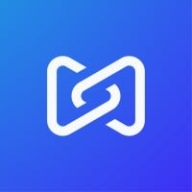

SonarQube Server and Klocwork are contenders in the static code analysis market. SonarQube seems to have an edge due to its community-driven open-source model and extensive language support, making it more accessible and flexible.
Features: SonarQube supports over 20 programming languages, offers customizable quality gates, unit test integrations, and allows for code duplications checks. Its ecosystem is robust with community plugins like "3D Code Metrics" facilitating graphical data representation and in-depth code exploration. Klocwork includes comprehensive static code analysis with support for C, C++, and Java. It features on-the-fly analysis and incremental reporting, providing deep insights into specific coding standards and guidelines.
Room for Improvement: SonarQube could improve analysis speed and security features and should aim to reduce false positives and configuration complexities in hybrid environments. Klocwork faces challenges with high licensing costs, limited language support, and issues with global variables causing false positives. Enhancements in reporting dashboards and language integration would benefit its competitive edge.
Ease of Deployment and Customer Service: SonarQube supports various deployment options, offering flexibility for organizations. The vibrant community and wealth of online resources provide self-service support, though official support may be expensive. Klocwork, mainly on-premises, provides adequate support but may have cumbersome integration processes due to licensing limitations.
Pricing and ROI: SonarQube's open-source model makes it accessible for smaller teams, with paid options available that may be costly but justify substantial code quality improvements. Klocwork offers flexible licensing models for different sizes of organizations, with a steady ROI driven by its early vulnerability detection. While SonarQube remains cost-effective due to its community edition, Klocwork’s structured pricing could appeal to enterprises seeking comprehensive solutions.
The main ROI factors include efficiency and how we meet compliance standards for various automotive requirements.
I have seen a return on the investment from SonarQube Server (formerly SonarQube) because the value it adds relates to static code analysis and vulnerability assessments needed for our FDA approval process.
We see productivity increasing based on the fact that the code review is mostly automated, allowing the developer to fix the code themselves before assigning it to someone else to review, thus receiving that ROI.
It's more about maintaining standards and being able to prevent issues before they occur.
The customer support team is very responsive, proactive, and engages in conversations to ensure our needs are met.
The issue is not about the knowledge of the support but about the prioritization of the tickets they handle.
During the initial phase, there was a need for follow-ups and clarifications.
The community support is quite effective.
I would rate the technical support for SonarQube Server (formerly SonarQube) as a 10 because we have not faced any specific issues that required us to contact tech support, which is a very rare case.
They showed us where we can actually get those granular level reporting extracted for Excel, which was a quick guide.
Klocwork supports our scalability needs without issues, even as project volumes increase.
The program-to-program enablement is scalable.
I would rate the scalability of SonarQube Server as a 10 because we can configure the server to scan multiple projects based on the number of lines.
I find SonarQube Server (formerly SonarQube) very scalable because we're able to create a new repository and integrate all the tools on that project and it just works.
Installation is easy, and the solution is stable.
I think SonarQube Server (formerly SonarQube) is stable, and we did not face any problems unless there was a power outage or if the LAN cable was plugged out.
There are too many warnings, and it requires expertise to determine the correct category for them.
Klocwork sometimes provides too many additional warnings which require expertise to manage.
We would like Klocwork to connect to Git and notify developers of issues tied to specific commits.
If I fix some vulnerabilities today, they reappear in the next scan, and there will be completely different issues that need to be fixed.
As soon as I see that they've got a new feature that integrates AI that is not as generative as other GenAI platforms that actually generate the code and help developers develop faster, I believe that capability is lacking.
Instead of grouping, I would prefer to scan the code as part of development and then generate a report on a daily basis among different units or projects, which is currently complicated.
It is less expensive than Coverity.
The solution is not very cheap, however, it is less expensive than Coverity.
Klocwork was competitively priced, making it a cost-effective solution for us.
I would rate the pricing for SonarQube Server (formerly SonarQube) as an 8, where 1 is very cheap and 10 is very expensive, because Coverity is very expensive, and while SonarQube is not cheap, it is still less expensive than Coverity.
They always offer around a two-year contract, but we always take a one-year contract because it's expensive.
The freemium version of SonarQube Server offers excellent value, especially compared to the high costs of Snyk.
The most valuable feature of Klocwork is the static analysis tools, which help identify potential security threats and errors.
Its integration with the CI/CD pipeline has helped streamline the software development process.
It takes just half a day to set up.
Some of the static code analysis capabilities are the most beneficial.
The most valuable features of SonarQube Server (formerly SonarQube) for us include having control of the rules, enabling and disabling them.
We use SonarQube Server's centralized management and visualization of code quality metrics on the dashboard because that's the executive dashboard that we send to the executives to show where we are in terms of quality, security, and where the company can improve.
| Product | Market Share (%) |
|---|---|
| SonarQube Server (formerly SonarQube) | 20.4% |
| Klocwork | 1.4% |
| Other | 78.2% |


| Company Size | Count |
|---|---|
| Small Business | 12 |
| Midsize Enterprise | 2 |
| Large Enterprise | 12 |
| Company Size | Count |
|---|---|
| Small Business | 32 |
| Midsize Enterprise | 21 |
| Large Enterprise | 75 |
Klocwork detects security, safety, and reliability issues in real-time by using this static code analysis toolkit that works alongside developers, finding issues as early as possible, and integrates with teams, supporting continuous integration and actionable reporting.
SonarQube Server enhances code quality and security via static code analysis. It detects vulnerabilities, improves standards, and reduces technical debt, integrating into CI/CD pipelines.
SonarQube Server is a comprehensive tool for enhancing code quality and security. It offers static code analysis to identify vulnerabilities, improve coding standards, and reduce technical debt. By integrating into CI/CD pipelines, it provides automated checks for adherence to best practices. Organizations use it for code inspection, security testing, and compliance, ensuring development environments with better maintainability and fewer issues.
What are the key features of SonarQube Server?Many industries implement SonarQube Server to uphold coding standards, maintain security protocols, and streamline their software development lifecycle. In sectors like finance and healthcare, adhering to regulations and ensuring reliable software is critical, making SonarQube Server invaluable. It is often integrated into CI/CD pipelines, ensuring that code changes meet set standards before deployment. This approach enhances productivity and maintains compliance with industry-specific requirements.
We monitor all Application Security Tools reviews to prevent fraudulent reviews and keep review quality high. We do not post reviews by company employees or direct competitors. We validate each review for authenticity via cross-reference with LinkedIn, and personal follow-up with the reviewer when necessary.